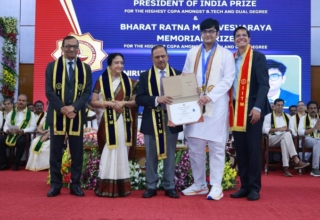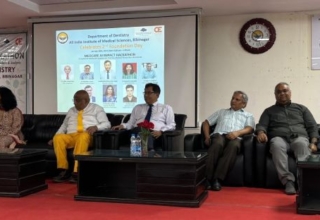
For the first time, 5 States and UTs have crossed the threshold of 90% PGI score and reached Grade I++
The union Ministry of Education (MoE) has approved the Performance Grading Index (PGI) 2019-20 and published a report. According to it a total of 33 States and UTs have improved their total PGI score in 2019-20 as compared to 2018-19. Punjab, Chandigarh, Tamil Nadu, Andaman & Nicobar Islands and Kerala occupy the highest grade (Grade A++). Twenty States/UTs have scored less than 120 (80% of maximum possible score in this domain). Two States, Bihar (81) and Meghalaya (87) recorded lowest scores in this domain. This is a cause for concern as a proper school building with adequate facilities is a must to improve the overall quality of school education.
In case of Learning Outcomes, it has been observed that, in general, the scores obtained in the higher standards are less than those in the lower standards. It is therefore, imperative to ensure better interventions at the lower standards as it will have a positive cascading effect at the higher levels. The forthcoming NAS would provide more clarity in quantifying the improvements in learning outcomes.
Reaffirming the common knowledge that shortage of teachers and principals and administrative staff, lack of regular supervision and inspection, inadequate training of the teachers, timely availability of finances (all of which are captured in the Governance and Management Domain) are some of the factors plaguing the education system in the country, Performance Grading Index (PGI) 2019-20 by MoE has confirmed it saying , “it is for the first time that there is a reliable tool that corroborates this”.
Department of School Education and Literacy (DoSEL) of the MoE designed the Performance Grading Index (PGI) in 2017 to catalyse transformational change in the field of school education and the current report is its third edition. It is based on assessment of 70 parameters. The PGI is structured in two categories, namely, Outcomes and Governance & Management and comprises 70 indicators in aggregate with a total weightage of 1000.
Data for 54 of the 70 parameters are for the year 2019-20. The updating of these data and vetting of the same have been carried out by concerned States/UTs at different levels, namely, school, district and State/UT level using the online portals of Shagun, UDISE+ and Mid-Day Mea(MDM), created and maintained by the DoSEL, MoE. For the remaining 16 parameters, scores from National Achievement Survey (NAS) 2017 conducted by the National Council of Educational Research and Training (NCERT) have been used in all the three PGIs, namely, PGI 2017-18, PGI 2018-19 and PGI 2019-20.
Indicators like availability of ICT facilities and timely availability of textbooks and uniforms, which are critical inputs for better performance of students (and mentioned in the RTE Act), are measured in the Infrastructure & Facilities Domain. Significant shortfalls in these areas have also been captured by the Index. On the brighter side, two States, Andaman & Nicobar Islands (141 in 2019-20 from 111 in 2018-19) and Odisha (109 in 2019- 20 from 72 in 2018-19) have shown marked improvements in the Infrastructure Domain between 2019-20 and 2018-19, indicating that the States and UTs have started to take action for improving their infrastructure and facilities, albeit by varying extent. Therefore, the PGI has so far been successful in nudging the States and UTs to improve both their governance process and infrastructure facilities.
Through the PGI, the shortfalls can be measured objectively and regularly. This is crucial for taking necessary steps to eliminate the gaps. India’s participation in the PISA in 2021 and associated CBSE exam reforms will take the school system from the present largely rote-learning-based system towards a more competency-based one.
The report says rigorous and robust in-service teachers’ training and school principals’ leadership development programme will be complemented by e-content under DIKSHA, which will support both the teachers and students. ICT will be leveraged at all levels and particularly under the revamped UDISE+, to ensure the collection of reliable and credible data, which along with enhanced GIS mapping of schools will help in decision-making.











